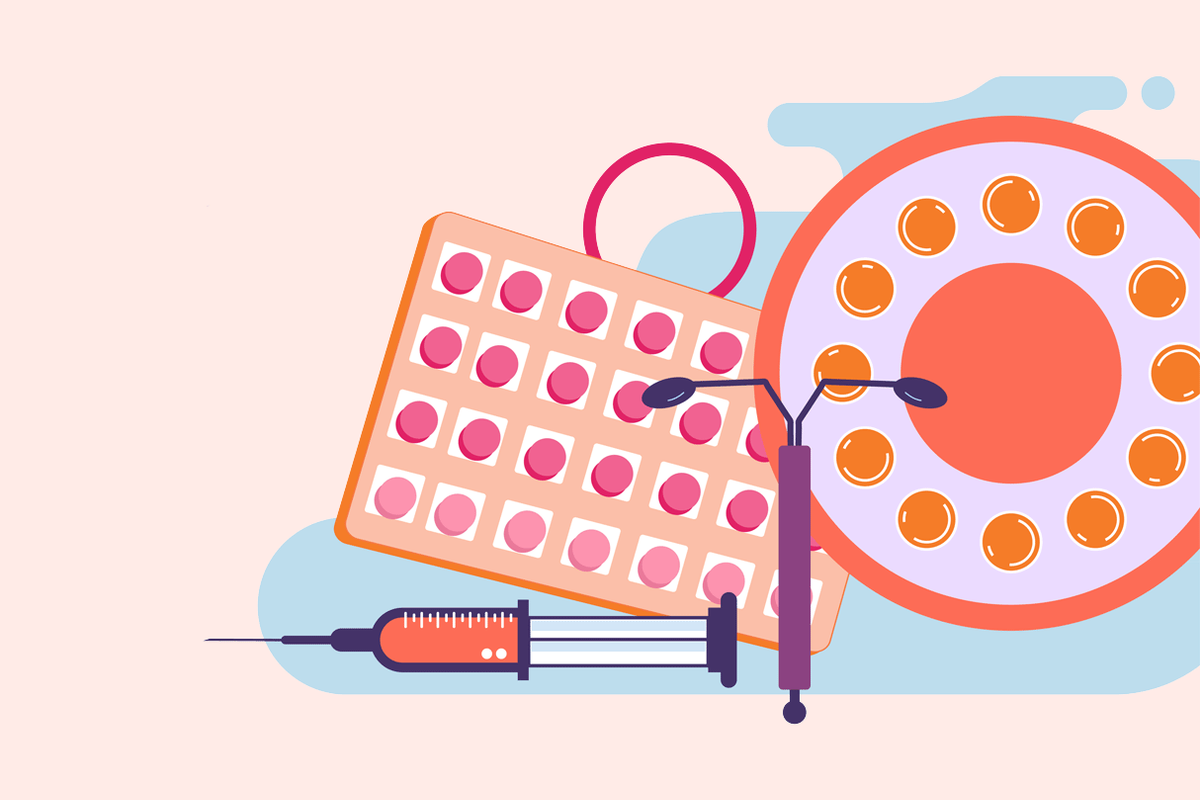What are hormonal contraceptives?
A type of birth control that uses hormones to prevent pregnancy and help manage periods and certain medical conditions
They are:
Safe for most women
99% effective at preventing pregnancy
Birth control is for more than just for preventing pregnancy
Many women use hormonal birth control to manage health issues , not just to prevent pregnancy:
- Acne
- Migraine
- Polycystic ovary syndrome (PCOS)
- Endometriosis
- Ovarian cysts
- Extreme period pain
What types of hormonal contraceptives are there?
- The pill, a form of contraception you take by mouth
- Progestin injection, a shot once every 12 weeks
- Progestin implantable rod, inserted under the skin, can remain for up to 3 years
- Estrogen and progestin skin patches, applied weekly for 3 weeks, followed by a week off
- Estrogen and progestin vaginal ring, used for 3 weeks, followed by a week off
- Intrauterine device (IUD) with progestin, inserted into the uterus where it can stay for up to 5 years
How should you take oral contraceptives?
Every day for three weeks, with a week off. Some women can take the pill with no break, if approved by their healthcare provider.
Important:
Take your pill at the same time every day because they have a short half-life!
Half-life = how long a drug stays in your body
What if you’re late taking your pill?
If you’re 3 hours or later taking combination pills (estrogen and progestin), you should use a back-up method until your next period.
If you’re 3 hours or later taking progestin-only pills (mini pill) , you need back-up for at least 2 days.
Know when you’ll have your period or skip it!
Hormone pills and vaginal rings can help regulate your period so it’s not a surprise every month. And they can make the bleeding less severe.
Hormonal IUDs and implants can stop periods altogether for some women, and make them lighter for others.
Planning a big getaway? You can delay your period.
If your period is scheduled to start when you get there, speak with your doctor about your contraceptive schedule and delaying your period.
Breakthrough bleeding
Breakthrough bleeding or spotting can happen with hormonal contraceptives. It’s most common with low-dose pills and the implant. Stopping your period increases breakthrough bleeding risk.
Bleeding with hormonal IUDs usually improves after the first few months.
Remember
Hormonal contraceptives do not protect you from sexually transmitted infections, like syphilis, HIV and chlamydia.
This resource was created with support from Alora.
- How to Effectively Use Your Birth Control Pills ›
- Birth Control Side Effects That Aren't Normal ›
- Clinically Speaking: Questions to Ask Your HCP About Birth Control Methods ›
- Fast Facts: What You Need to Know About Birth Control ›
- Birth Control Pills ›
- Hormonal vs. Non-Hormonal Contraception: What’s the Difference? ›
- Tips for Choosing a Birth Control Method - HealthyWomen ›
- Modern Birth Control Methods - HealthyWomen ›
- Cómo funciona la anticoncepción hormonal - HealthyWomen ›
- How Hormonal Contraception Works - HealthyWomen ›
- Cómo hacer el cambio a píldoras anticonceptivas sin estrógeno - HealthyWomen ›
- How to Switch to Estrogen-Free Birth Control Pills - HealthyWomen ›








